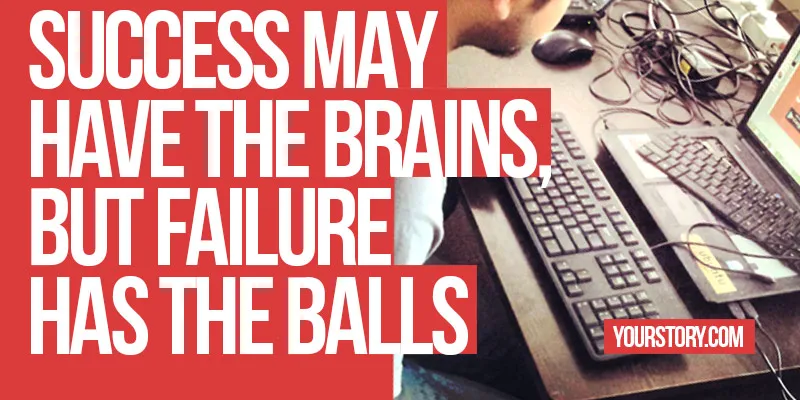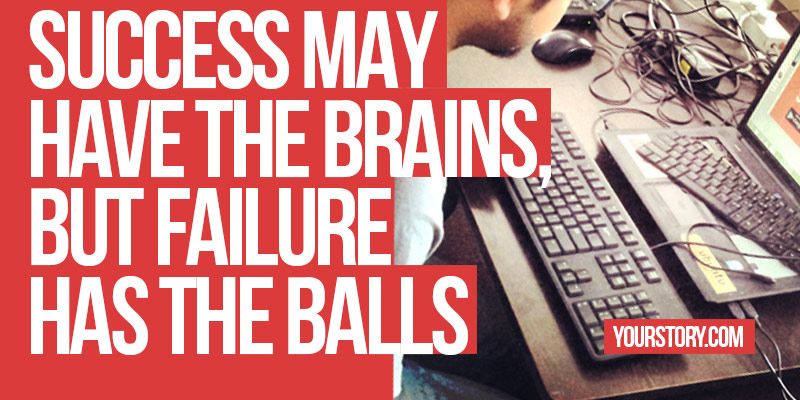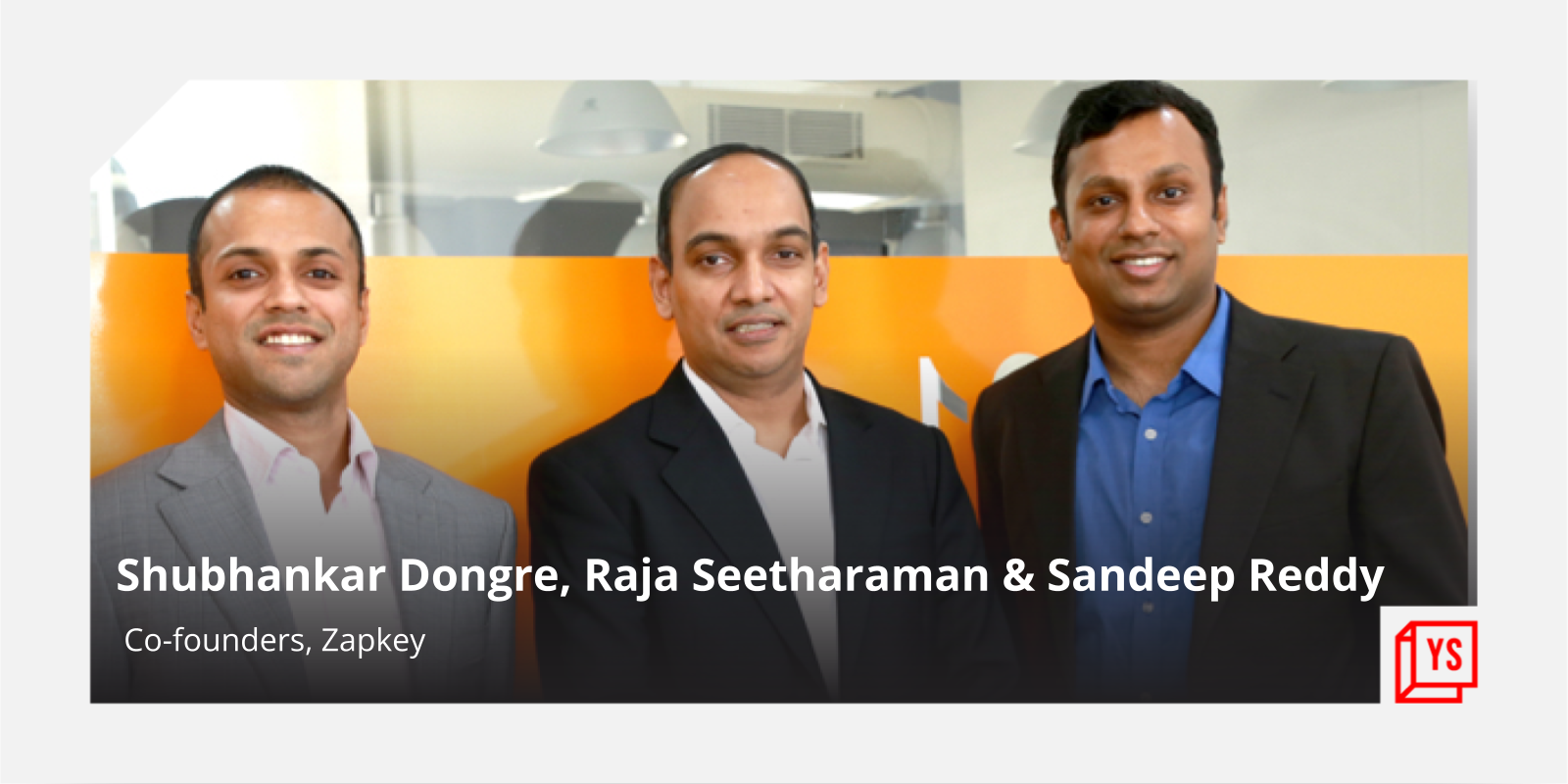Real Startups please fail fast
If Eminem were to sing a song for the startup world, we can only guess what it would be like. Here’s what I would pick, from his all-time hit
‘The Real Slim Shady’ –
May I have your attention please?
May I have your attention please?
Will the real slim startup please fail fast?
I repeat, will the real slim startup please fail fast?

Subrata Mitra from Accel Partners made a very similar remark in a recent chat with YourStory. He said, “One conversation that needs to become mainstream in the startup world is the talk on failure. All of us should learn to take failure as a positive experience; it is probably the next best thing (to success) that will ever happen to us in our entrepreneurial journey. You will be surprised with the level of maturity you will gain. Don’t drag on failure, fail quickly and move on.”

Recalling his own failure, Subrata says, “My first startup was hit by 9/11 smack in the middle of fund-raising, and we simply could not do much to turn the tide. Many of the people who supported me (as investors/advisors/team members) then, still work with me now; neither they nor I were deterred.” The success that Subrata has achieved with his later ventures, and now as a seasoned investor, can probably be partly attributed to some of this ‘real’ early learning.
Almost daily, we are fed with news of startup successes; everyone around us seems to be fund raising or reaching big milestones. It all appears like a big party out there. It’s almost déjà vu; the same performance pressure that surrounded us in school and college is back to haunt us in our startup journey as well.
“The startup industry has become the new entertainment industry, where those who make it big are glorified as stars and featured in the media, and their valuations skyrocket overnight. With success stories like these, it’s tempting to associate the startup industry with glamour and an indulgent lifestyle,” writes Sonia Lin in her new book, ‘Secret to Startup Failure: fail fast, fail cheap, fail happy’.
But the reality is far from the noise around us — sitting quietly in the numerous deals that do not happen daily, clients who never pay, money which cannot be raised, founders splitting, investor, founder relation going sour, realizing that it’s all for the wrong reason and on top of it a market which is unyielding.
Failure is an everyday reality in the startup world. More and more startups shut shop than we care to admit.
Subrata says, “Whatever was yesterday you will not get it back, distil those learnings and use it to cover the gaps: maybe by being a lot more positive and less circumspect about what to do next and just keeping on walking, you will see your maturity level go significantly higher and you will likely be several times as effective.”
“Founders, who have had a failed startup experience behind them, invariably develop into rounded CEOs. I have met some of the smartest guys who have taken their learnings from failure and made a big, positive impact on themselves and those around them. They have quickly realized that failure is part of the game and moved on to the next thing.”

“I certainly have a fear of failure,” admitted Elon Musk at a summit. Musk then went on to add that he financed Space X to have enough money for its first three launches. However, each of the three failed. The company managed to scrape together enough money for a last-chance fourth launch. “I was so tense (during the launch) that when it succeeded I didn’t actually feel elation – just stress relief, that’s all.”One cannot generalize, but the chances of failure are comparatively higher in India for multiple reasons. One, surely, is the lack of mergers and acquisitions in our country. “Flipkart is one of the very few ventures which has acquired four startups till date. We still have the mindset of doing everything on our own and not looking at acquisition as the way to build domain expertise or scale,” remarks Subrata. The other important thing is that it takes little resources to survive, and therefore people don’t tend to take hard decisions, and things linger on!
Another question that startups ask is, if a venture similar to yours gets acquired, does it make them better than you? If you think this through, you will realise acquisition and funding, like most things in life, sometimes just come down to pure luck at a given point of time.
It’s very natural to fear failure. According to Mindtools.com, “It’s almost impossible to go through life without experiencing some kind of failure. People who do so probably live so cautiously that they go nowhere. Put simply, they’re not really living at all. The wonderful thing about failure is that it’s entirely up to us to decide how to look at it. Failures stop us only if we let them.”

Let’s not forget some of the spectacular failures behind the big successes we talk about today. The change towards how we view failure has to begin in our minds.These words from Steve Jobs inspire every time one reads them, because they talk to our inner fears, “I didn’t see it then, but it turned out that getting fired from Apple was the best thing that could have ever happened to me. The heaviness of being successful was replaced by the lightness of being a beginner again, less sure about everything. It freed me to enter one of the most creative periods of my life,” Jobs said in the famous Stanford commencement speech.







![[Funding alert] InnoVen Capital invests Rs 25 Cr in consumer electronics startup boAt](https://images.yourstory.com/cs/2/11718bd0-2d6d-11e9-aa97-9329348d4c3e/Image55f31563363798309.jpg)



